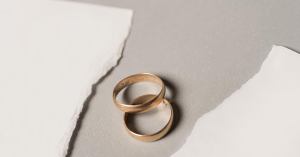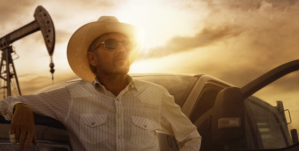Kelly Catlin, a member of the U.S. women’s cyclist team at the 2016 Rio de Janeiro Summer Olympics, died by suicide, according to her father. She was 23.
Mark Catlin told VeloNews in a letter on Sunday that his daughter’s cause of death was suicide. She was found Friday night at her on-campus residence at Stanford University in California.
Videos by PopCulture.com
“There isn’t a minute that goes by that we don’t think of her and think of the wonderful life she could have lived,” Mark Catlin wrote. “There isn’t a second in which we wouldn’t freely give our lives in exchange for hers. The hurt is unbelievable.”
Catlin’s sister, Christine, told the Washington Post her sister was “a really special person — kind, funny, empathetic, and talented at literally everything she did. She just felt like she couldn’t say no to everything that was asked of her and this was her only escape.”
Catlin was instrumental in helping Team USA win the silver medal in team pursuit at the Rio Games. She also won team gold medals at three consecutive World Championships from 2016 to 2018. She won individual bronze medals at the 2017 and 2018 championships.
“Everything she did, she was the best at when we were little kids,” Christine told the Post. “Sports, violin and she casually picked up cycling. We were the Catlins, so we were this force.”
Catlin, Christine and their brother, Colin Catlin, are triplets.
“I always saw myself as the planner and she was the doer,” Colin told the Post. “I could always see the three of us taking over the world. We were a massive ball of energy and we supported each other in everything.”
Catlin, who was born in St. Paul, Minnesota, was working on a graduate degree in Computational Mathematics at Stanford while still cycling professionally. She also played violin and was an artist.
Family members told the Post she suffered a concussion and broke her arm after separate crashes last year. Christine said she was struggling to continue training and said her sister attempted suicide in January. However, Colin said his sister was “optimistic about her future” when they talked a week or so ago.
“The thing that haunts me is that she called me about a week and a half before [she died] and we talked for like 2½ hours and she opened up to me about her whole life,” Christine added.
Catlin also contributed blog entries for VeloNews, including one on Feb. 27 about how she juggled her interests. In the essay, she also wrote about the importance of identifying your own weaknesses and moving on from failures.
“Now I am going to say something cliché: The greatest strength you will ever develop is the ability to recognize your own weaknesses, and to learn to ask for help when you need it,” she wrote. “This is a lesson I have only just begun learning, slowly and painfully, these first few months as a graduate student. I still fail. As athletes, we are all socially programmed to be stoic with our pain, to bear our burdens and not complain, even when such stoicism reaches the point of stupidity and those burdens begin to damage us. These are hard habits to break.”
If you or someone you know needs help, please call the National Suicide Prevention Lifeline at 1-800-273-TALK (8255).
Photo credit: EMMANUEL DUNAND/AFP/Getty Images








